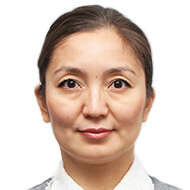Starting next year, patients will benefit from faster access to healthcare services, while healthcare professionals will experience a reduced administrative workload and an increase in salaries. These reforms are also aimed at improving the availability of essential antibiotics and medical supplies for the public.
From January 1, essential antibiotics, which were previously only partially reimbursed for children and vulnerable groups, will now be fully reimbursed for all eligible patients. Doctors will be able to prescribe these antibiotics, listed on the A list of reimbursable medicines, to those meeting the appropriate medical criteria. The antibiotics will be available to treat conditions such as acute upper respiratory tract infections, acute bronchitis, ear infections, bacterial diseases, endocarditis, and skin or subcutaneous infections, among others.
The Compulsory Health Insurance Fund (CHIF) will increase coverage for key medical devices and equipment. This includes higher reimbursement rates for hearing aids, prosthetic eyes, and orthodontic appliances. Additionally, the rental of insulin pumps for patients with type 1 diabetes—essential for home-based care—will be reimbursed at improved rates.
Administrative procedures will also be streamlined to enhance service efficiency. Chronically ill patients will face fewer delays, as they will no longer require repeated referrals for long-term health monitoring. Family doctors will issue specialist referrals only once, simplifying the process and reducing paperwork for healthcare providers.
To further improve access to care, nurses and midwives will be empowered to provide direct consultations. They will have the authority to prescribe tests, interpret results, advise on self-monitoring strategies, and guide patients in the use of medications. This change is expected to help reduce wait times at general practitioners’ (GP) offices. GPs or other team members will assess and refer patients to nurses or midwives based on the nature of their healthcare needs.
Finally, healthcare workers, including doctors and nurses, will receive an average salary increase of at least 10% next year. This is made possible by an increase in the base prices for personal healthcare services, which was introduced by the Minister of Health on November 1. Healthcare institutions will receive additional funding from the Personal Health Care Services Fund (PSDF), enabling them to raise staff wages and improve overall service capacity.





